Black History, Government, Military
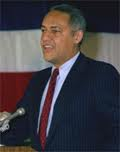
Cliffors Alexander Jr. first African American Secretary of the Army
Clifford Alexander Jr. was born and raised in Harlem prior to his education at Fieldstone Ethical Culture, Harvard (1955) and Yale Law School (1958). Early influences were his mother and father. Edith served as the Deputy Director then Executive Director of the Mayor’s Committee on Unity under NYC Mayor LaGuardia. The Mayor’s Committee on Unity was the precursor to the NYC Commission on Human Rights and fought discrimination in employment practices, public accommodations, and housing.
His father was one of several Harlem community leaders who founded the Carver Bank in response to discriminatory lending practices and worked to integrate the Riverton Apartments while serving as its manager. Alexander joined the National Guard after Law School and began working as an attorney in New York. He was asked to come to Washington D.C. in 1963 to join the staff of the National Security Council in the Kennedy administration. (more…)
Black History, Government

Edward W. Brooke
Edward W. Brooke’s election to the U.S. Senate in 1966 ended an 85-year absence of African-American Senators.
A Senator from Massachusetts; born in Washington, D.C., October 26, 1919; attended the public schools of Washington, D.C.; graduated from Howard University, Washington, D.C., in 1941; graduated, Boston University Law School 1948; captain, United States Army, infantry, with five years of active service in the European theater of operations; chairman of Finance Commission, city of Boston 1961-1962.
He was elected attorney general of the Commonwealth of Massachusetts in 1962; reelected in 1964; elected as a Republican to the United States Senate in 1966; reelected in 1972 and served from January 3, 1967, to January 3, 1979; unsuccessful candidate for reelection in 1978; first African American elected to the Senate by popular vote; lawyer; awarded the Presidential Medal of Freedom on June 23, 2004; is a resident of Miami, Fla.
Black History, Government
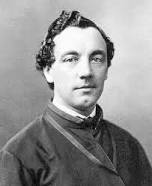
Father Patrick Francis Healy
Patrick Francis Healy (February 27, 1830 – January 10, 1910) was the 29th President of Georgetown University known for expanding the school following the American Civil War. He was accepted as and identified as Irish-American. Healy Hall, a National Historic Landmark, was constructed during Healy’s tenure and is named after him.
In the 1960s the history of Healy’s mixed-race ancestry became more widely known, and he was recognized as the first American of African ancestry to earn a PhD; the first to become a Jesuit priest; and the first to be president of a predominantly white college.
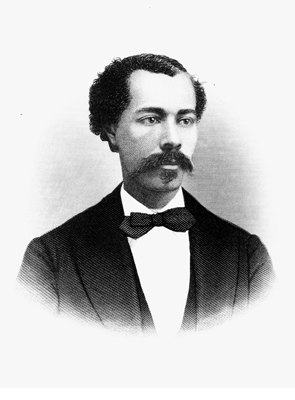
Black History, Government
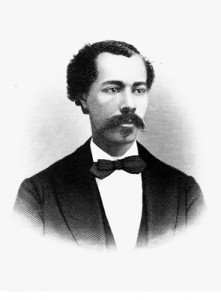
Representative, 1873-1877, Republican from Mississippi
Representative, 1882-1883, Republican from Mississippi
The only African-American Representative from Mississippi for a century, following a quick rise in politics at a young age, John Roy Lynch fought to maintain Republican hegemony in his state in the face of violent Democratic opposition. A veteran of the Civil War and, later, the Spanish-American War, Lynch emphasized his rights as an American citizen on the House Floor.
“It is certainly known by southern as well as northern men that the colored people of this country are thoroughly American,” he declared. “Born and raised upon American soil and under the influence of American institutions; not American citizens by adoption, but by birth.” (more…)
Black History, Government
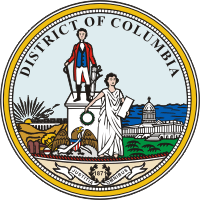 The District of Columbia, which became the nation’s capital in 1791, was by 1862 a city of contrasts: a thriving center for slavery and the slave trade, and a hub of anti-slavery activity among abolitionists of all colors. Members of Congress represented states in which slavery was the backbone of the economy, and those in which slavery was illegal.
The District of Columbia, which became the nation’s capital in 1791, was by 1862 a city of contrasts: a thriving center for slavery and the slave trade, and a hub of anti-slavery activity among abolitionists of all colors. Members of Congress represented states in which slavery was the backbone of the economy, and those in which slavery was illegal.
One result of the intense struggle over slavery was the DC Compensated Emancipation Act of 1862, passed by the Congress and signed by President Abraham Lincoln. The act ended slavery in Washington, DC, freed 3,100 individuals, reimbursed those who had legally owned them and offered the newly freed women and men money to emigrate. It is this legislation, and the courage and struggle of those who fought to make it a reality, that we commemorate every April 16, DC Emancipation Day.
Though the Compensated Emancipation Act was an important legal and symbolic victory, it was part of a larger struggle over the meaning and practice of freedom and citizenship. These two words continue to be central to what it means to be a participating member of society. We invite you to think about what these concepts have meant in the past and what they mean to you today.
by Mayor Vincent C. Gray
Black History, Government
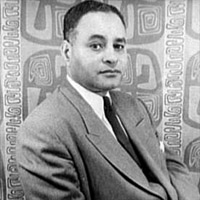
Ralph Bunche
Bunche was the first black person to win the Nobel Peace Prize, awarded in 1950. Born in Detroit, Michigan, Bunche and his sister were orphaned in 1915 and reared by their grandmother in Los Angeles. A brilliant, industrious student, Bunche graduated from Jefferson High School in 1922 as class valedictorian but was barred from the honor society because of his race.
In 1927, Bunche graduated from the University of California at Los Angeles, where he had excelled both in and outside the classroom. He wrote for the school newspaper, won oratorical contests, was sports editor of the yearbook, played guard for three years on the basketball team, and became Phi Beta Kappa. He then entered Harvard University, where in 1934 he became the first African American to earn a Ph.D. in government and international relations. (more…)






